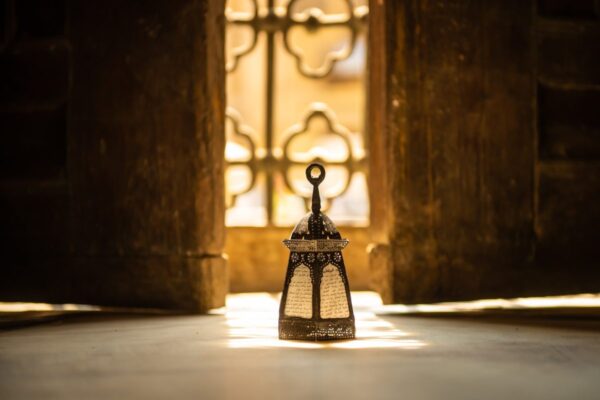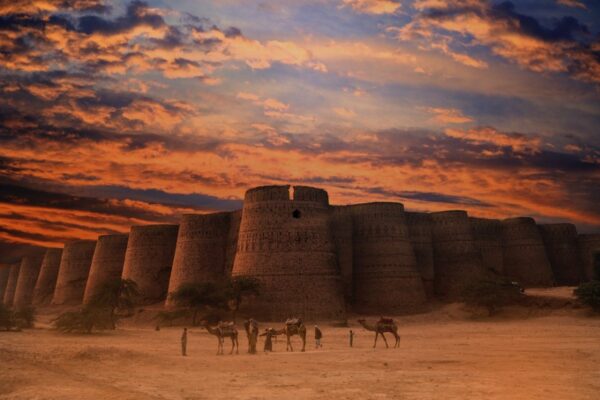The second principle of faith is to believe in the angels. It is fard (obligatory) for every Muslim to believe in the angels.
Allah Almighty says the following about the angels in the Qur’an:
“The Messenger believes in that which has been revealed to him from his Lord, as also the believers believe. Each of them believes in Allah, His angels, His books and His messenger…” (al-Baqara, 285)
Contents
Pillar of Faith (Iman)
Believing in the angels, whose attributes and duties are explained in detail in the Qur’an, is one of the principles of belief in Islam. This belief has a very important place in the belief system of the religion of Islam. For the angels are “Allah’s divine messengers”, conveying Allah’s “divine revelation”, which is the basis of the institution of prophethood, which is regarded as a bestowal and mercy from Allah Almighty to the people, from the realm of the unknown to the people and to the prophets chosen among them.
The angels are the spiritual beings of Allah, who regulate the system and order in the heavens and on the earth; they are the venerable scribes and luminaries, who protect men, who inspire them to good deeds and charity, and who record what they do.
Types of Angels
Angels are divided into mainly 3 groups:
1. Angels who worship; they are called Illiyyun – Muqarrabun,
2. Angels related to nature; they are called mudabbirat,
3. Angels related to man…
Angels Who Worship: Muqarrabun
They are always engaged in mentioning the names of Allah, the Almighty, glorifying Him by saying that He is free from all imperfections, and bless Him with all His perfect attributes. They are overwhelmed by the knowledge, love and worship of Allah. (See: an-Nisa 4/172) Angels in charge of the duties of Paradise and Hell belong to this group. (ar-Ra’d 13/23-24; at-Tahrim 66/6; al-Muddaththir 74/29-31)
They are angels charged with the administration of the universe, applying the divine laws that maintain order in nature. They supervise and observe the manifestations of Allah’s will and power in nature.
Angels dealing with humans
The most important of them is Gabriel (as). His task is to convey divine revelation to the prophets. That is why he is also called the angel of revelation. Gabriel is also called ruhu’l-amin (Trustworthy Spirit). (ash-Shuara 26/193-194) In another verse he is called ruhu’l-Qudus (Holy Spirit). (an-Nahl 16/102) He is also called Sayyidu’l-malaike (Lord of the Angels).
Another task of the angels in relation to human beings is to strengthen the messengers of Allah and the good slaves and comfort them when they are in trouble or when they are sad, elevate their spirituality and actually help them when it is necessary. The Quran tells us that the angels actually helped the believers in the battles of Badr, Uhud and Hunayn, which took place in the Age of Bliss.
Another task of the angels that has to do with man is to instill good things in people and to enable them to follow the right path and to elevate them spiritually.
Some of those angels have some special tasks
– Angels charged with inspiring truth and good into the heart of man. (Tirmidhi/Tafsir 3);
– Angels in charge of saying amen at the end of the al-Baqara chapter…. (Bukhari, Adhan 111, 112)
– Angels who are together with the believers every day during morning and afternoon prayers. (Bukhari, Mawaqit 16; Muslim Masajid 37)
– Angels descending on the earth when the Qur’an is recited. (Bukhari, Fadailu’l-Qur’an 15; Muslim, Musafirun 36).
– Angels who visit places where the names of Allah are mentioned (dhikr), the Qur’an is recited and useful knowledge is taught (Bukhari, Daawat 66; Muslim, Dhikr 8)…
– Angels asking mercy for believers (al-Ahzab 33/43)
– Angels asking mercy for scholars (Tirmidhi, Ilm 19)
Recording Angels
There are two receiving angels with each person. They write down and record all kinds of actions, words and behaviors of each person, whether they are good or bad. They are called Kiraman Katibin: Venerable Recorders in the Qur’an. (See Qaf 50/17-18; al-Infitar 82/10-12; az-Zukhruf 43/86)
Munkar – Nakir Angels
It is the angels who interrogate man after he has died in the grave and ask such questions as: “Who is your Lord? What is your religion, Who is your prophet?
Azrael (Malak’ul Mawt) (as):
He is in charge of removing the souls from the bodies of the people. He is also called the Angel of Death. (as-Sajda 32/11)
Michael (as):
He is the angel in charge of delivering the necessities of life to their owners and arranging natural phenomena such as wind and rain, according to the will of Allah.
Israel (as):
He is the angel in charge of blowing the Soor (the Trumpet) and announcing the time of the Day of Judgment. After the Day of Judgment has struck and all living creatures have died, Israel will blow the trumpet again and the people will come out of their graves and go to the Gathering Place (Mahshar).






